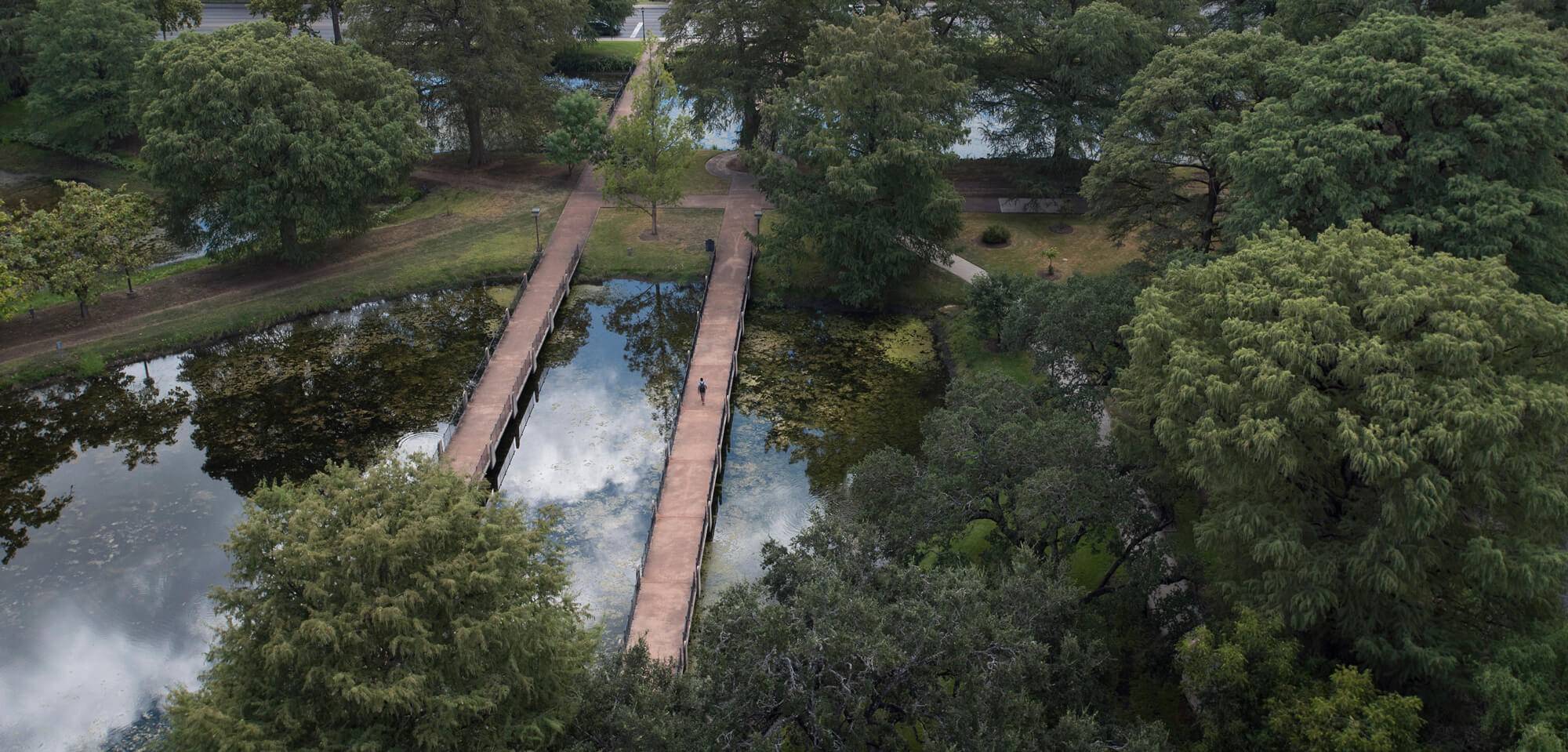March 8, 2019
by Emma Carberry | Outreach Coordinator, College of Education
In 2015, the LBJ Institute for STEM Education and Research in Texas State’s College of Education partnered with NASA to launch the NASA STEM Educator Professional Development Collaborative (NASA STEM EPDC). The collaborative program’s mission consists of providing professional development to STEM educators nationally. In order to do so, NASA STEM EPDC placed Texas State University Education Faculty Specialists in each of NASA’s ten Research and Space Centers across the country.
Dr. Lester Morales has served as the Education Professional Development Specialist at NASA’s Kennedy Space Center in Florida since the inception of NASA STEM EPDC. As such, he brings professional development opportunities in the STEM fields to K-16 and informal educators in his region, which consists of Georgia, Florida, Puerto Rico and the U.S. Virgin Islands.
Typically, Morales’ goal is to visit and deliver information to the areas within his region at least three times per year. However, when Hurricane Maria devastated Puerto Rico in the fall of 2017, Morales was barred from travelling to this part of his region at a time when they needed support the most. Around that time, Morales had been tasked with leading the NASA Network of States project for the Kennedy Center, which was a three-year program with the goal of bringing professional development to K-12 educators, high school students, and university faculties of minority-serving institutions in his region. Having served all three of those groups in Georgia and Florida, Morales began to feel a call of duty to complete a focused professional development for university faculty in Puerto Rico, an island that is home to 57 minority-serving institutions.
In late August 2018, after a year of his absence from the island, Morales was able to get permission to travel to Puerto Rico to deliver professional development to the remainder of his region. By this time, the Network of States grant was reaching its end, and Morales knew he did not have time to deliver services to all three of the grant’s target audiences, so he decided to focus on the university faculty. However, he strategically partnered with NASA’s recruiting program, NASA Internships and Fellowships, to concurrently conduct interviews and information sessions with university students during his faculty development sessions.
During his five days in Puerto Rico, Morales visited universities in three cities, drawing a crowd of over 250 university faculty members from 32 different institutions. Morales invited fellow Texas State Education Professional Development Specialist Dr. Barbie Buckner of NASA’s Armstrong Flight Research Center in California to join him. Buckner’s specialty is in aeronautics, which is an up-and-coming industry in Puerto Rico due to Lufthansa and Jet Blue moving their service and maintenance facilities to the island, in turn opening job opportunities.
Morales also invited speakers from NASA’s International Space Station Center for the Advancement for Science in Space (ISS CASIS) which is the managing body for all U.S.-generated experiments whose labs go to the International Space Station. At the time, not a single experiment had been flown from Puerto Rico and representatives from ISS CASIS illuminated research opportunities for local faculty. Morales was intentional about bringing NASA engineers with him who were “not just any engineers,” but “born, raised and educated engineers from Puerto Rico.” This is important for Morales, who says he wants his audiences “to see that this engineer came from the same background as they did, and they made it...and their English is not perfect, and their skin is the same as theirs, that they speak a common language, that they struggled, but that they work hard, and they made it.”
Together, Morales, Buckner and the representatives from ISS CASIS walked the STEM educators through the process of applying for grants through NASA and the various opportunities they had for funding and collaboration. Morales’ presentations in Puerto Rico ultimately had the highest turnout of any of the other presentations he had given to faculties at minority-serving institutions in his region. In San Juan, Puerto Rican educators were joined by faculty from the University of the Virgin Islands (the only higher education institution in the U.S. Virgin Islands). It was important to Morales to make this possible so that his entire region would receive professional development opportunities by the time Network of States grant expired.
In an area that has been so affected by natural disaster, Morales reflects, “it’s extremely important to connect and to provide not only teachers, but the students, the hope that there’s something more after school. That there’s other opportunities...that they can one day join the exploration teams with us.” His number one priority following the hurricane was to get to every area of his region and give back through his work. Now, he says, several Puerto Rican universities are interested in hosting additional professional development opportunities on their campuses, and those who have attended his sessions reach out to him via email and Twitter to let him know how appreciative they are of the opportunities he brought to them. Morales will be traveling back to Puerto Rico in early April to provide additional programming to K-16 and informal educators.
